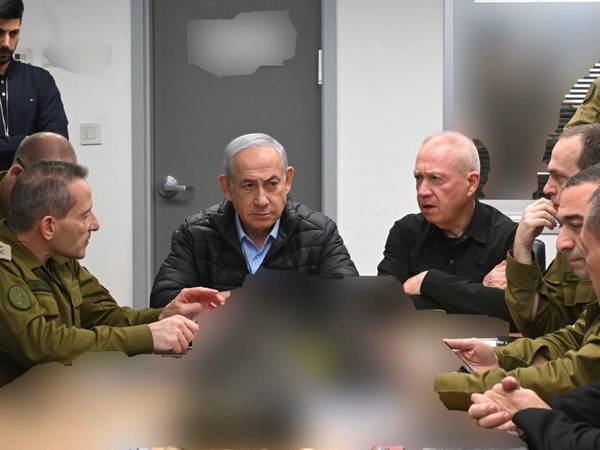Israeli jets completed air strikes on military and missile sites in Iran in the early morning hours of Saturday which it described as retaliation for an October 1 Iranian ballistic missile attack on Israel.
The move appeared calibrated to avoid pushing the Mideast closer to all-out war between two of its strongest military powers, with no casualties immediately reported.
Combat pitting the Jewish state against Iran-backed Lebanese Hezbollah and Palestinian Hamas has ratcheted up in recent weeks, bringing Iran and Israel into more direct confrontation.
Multiple explosions were heard in and around Tehran at around 2:15 am local time and several hours later again in the capital and in two southwestern cities.
The Israeli military said "The retaliatory strike has been completed and the mission was fulfilled," adding that "aircraft struck missile manufacturing facilities used to produce the missiles that Iran fired at the State of Israel over the last year."
Targets also included surface-to-air missile and anti-aircraft capabilities, the military added.
“Iran reserves the right to respond to all attacks and there’s no doubt that Israel will get a proportionate response to any action” IRGC-affiliated Tasnim news agency quoted an informed source as saying.
They added that "initial assessment shows the Zionist regime’s actions were weak.”
The United States, Israel's main political and military backer, described the attack on their mutual archenemy in the region as self-defense.
"We understand that Israel is conducting targeted strikes against military targets in Iran as an exercise of self-defense and in response to Iran’s ballistic missile attack against Israel", US National Security Council spokesman Sean Savett said in a statement.
Jonathan Harounoff, International Spokesperson for Israel at the United Nations told Iran International Israel had to respond to Iran's missile barrage.
"Israel has a right and a duty to defend itself from a regime that has continued to attack Israel relentlessly over the past year, directly and through its terror proxies," he said.
Iran's Oct. 1 ballistic missile fusillade against Israel came in response to Israel's likely assassination of Hamas leader Ismail Haniyeh in Tehran in July and killing of Hezbollah chief Hassan Nasrallah last month.
It was the second direct attack by the Islamic Republic on Israel this year after an earlier salvo in April which also caused minimal damage or casualties and was repelled with US help.
Israel's strike on Iran unfolded in three stages, Israel's public broadcaster said.
Blasts were also heard in the southwestern cities of Ahvaz and Abadan in Khuzestan province, residents told Iran International.
Mizan News agency in Iran reported sounds of renewed explosions in central Tehran.
Strikes hit Parchin, a large area of military factories for missiles and drones, according to Beni Sabti, an expert on Iran from the Israeli National Security and Strategy Institute (INSS).
Sabti used to serve as a Persian spokesperson for the Israeli government on Iranian issues and is in frequent contact with senior Israeli officials.
The Israeli military announced the completion of its retaliatory strikes against Iran around 6am local time, saying they damaged Iran's military infrastructure - including air defense systems and ballistic missiles capabilities.
Israeli military officials told reporters in a briefing that dozens of fighter jets participated in the attack and have all returned to their bases safely.
The operation was code named "Days of Repentance," and marks the first time Israel took responsibility for an attack in Iran.
